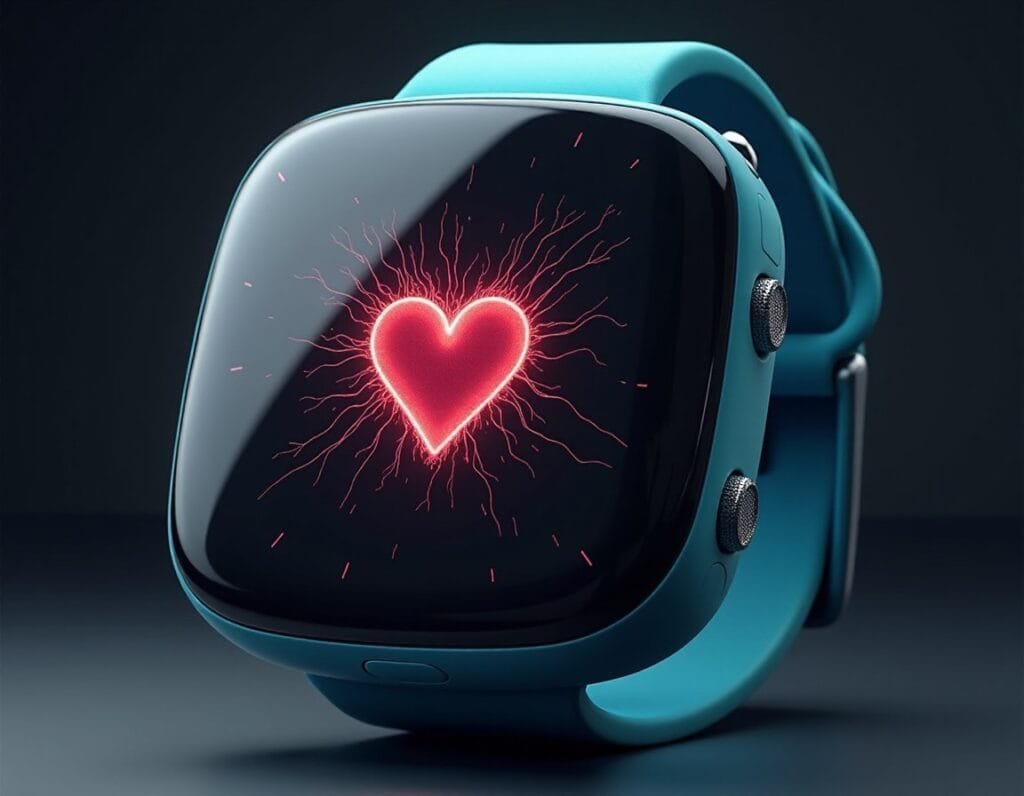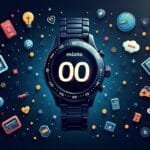“`html
Are You Wearing Your Stress on Your Sleeve? Discover the Revolutionary Stress Monitoring Wearables That Can Predict Heart Attacks and Change the Future of Healthcare Forever.
In today’s fast-paced world, stress has become an inevitable companion for many fitness enthusiasts and individuals alike. With the rise of wearable gadgets and technology trends, it’s no surprise that stress monitoring wearables have taken center stage in the health and wellness industry. These innovative devices not only track your heart rate but also monitor stress levels, providing valuable insights into your mental well-being.
As we continue to push the boundaries of wearable technology, stress monitoring wearables are poised to revolutionize the way we approach healthcare. By leveraging cutting-edge sensors and AI-powered algorithms, these wearables can detect early warning signs of cardiovascular disease, allowing for timely interventions and potentially saving lives. In this article, we’ll delve into the top devices for US & global fitness enthusiasts, exploring their features, benefits, and real-life applications. Whether you’re a seasoned athlete or simply looking to take control of your mental health, our comprehensive guide will help you navigate the world of stress monitoring wearables and discover the perfect device to suit your needs.
What is Stress Monitoring Wearables?
Stress monitoring wearables are devices equipped with sensors and algorithms designed to track physiological indicators of stress, such as heart rate variability and skin conductance. These devices provide real-time feedback, helping users manage stress and improve overall mental health.
The Evolution of Wearable Gadgets and Technology Trends
The journey of wearable gadgets began with simple fitness trackers, but today, they have evolved into sophisticated devices capable of monitoring a wide range of health metrics. The integration of AI and machine learning has enhanced their capabilities, making them indispensable tools for health management.

Top 10 Stress Monitoring Wearables Revolutionizing Health in 2025
As we look towards 2025, several stress monitoring wearables are set to make a significant impact. Here are the top 10 devices that are leading the charge:
- Apple Watch Series 8: Known for its advanced heart rate monitoring and ECG capabilities.
- Fitbit Sense: Offers stress management tools and skin temperature tracking.
- Garmin Venu 2: Provides comprehensive health monitoring, including stress tracking.
- Whoop Strap 4.0: Focuses on recovery and stress management with detailed analytics.
- Oura Ring: A discreet option that tracks sleep and stress levels.
- Samsung Galaxy Watch 5: Features advanced health sensors and stress management tools.
- Polar Vantage V2: Offers heart rate variability tracking for stress assessment.
- Withings ScanWatch: Combines medical-grade ECG with stress monitoring.
- Amazfit GTR 3 Pro: Provides stress monitoring and breathing exercises.
- Huawei Watch GT 3: Known for its long battery life and stress tracking features.
How Do Stress Monitoring Wearables Work?
Stress monitoring wearables utilize a combination of sensors to gather data on physiological responses. These include:
- Heart Rate Sensors: Measure beats per minute to detect stress-induced changes.
- Skin Conductance Sensors: Assess sweat gland activity linked to stress.
- Temperature Sensors: Monitor skin temperature fluctuations.
- Accelerometers: Track movement and activity levels.
By analyzing this data, the devices provide insights into stress levels and suggest interventions like breathing exercises or mindfulness practices.
Benefits of Using Stress Monitoring Wearables
Integrating stress monitoring wearables into daily life offers numerous benefits:
- Early Detection: Identifies stress patterns and potential health risks.
- Personalized Feedback: Offers tailored recommendations for stress management.
- Improved Mental Health: Encourages mindfulness and relaxation techniques.
- Enhanced Physical Performance: Helps athletes optimize recovery and performance.
Real-Life Applications and Case Studies
Several case studies highlight the effectiveness of stress monitoring wearables in real-world scenarios. For instance, a study published in the Journal of Medical Internet Research demonstrated that users of the Fitbit Sense experienced a significant reduction in perceived stress levels after eight weeks of use.
Comparing the Top Stress Monitoring Wearables
| Device | Key Features | Price Range |
|---|---|---|
| Apple Watch Series 8 | ECG, Heart Rate Monitoring | $399 – $749 |
| Fitbit Sense | Stress Management, Skin Temperature | $299 – $329 |
| Garmin Venu 2 | Comprehensive Health Monitoring | $399 – $449 |
Challenges and Future Prospects
While stress monitoring wearables offer immense potential, they also face challenges such as data privacy concerns and the need for continuous innovation. However, the future looks promising with advancements in AI and sensor technology paving the way for more accurate and user-friendly devices.
Conclusion
In conclusion, stress monitoring wearables are transforming the landscape of health and wellness. By providing real-time insights and personalized feedback, these devices empower individuals to take control of their mental health. As technology continues to evolve, the possibilities for these wearables are endless.
For more information on the latest in wearable technology, visit WearableGearTrends.com and explore our dedicated section on Heart Rate and Stress Monitoring Wearables.
Additional Resources
- Journal of Medical Internet Research – Study on the effectiveness of stress monitoring wearables.
- World Health Organization – Information on stress and health.
- Healthline – Comprehensive guide on stress management.
Stay updated with the latest trends in wearable technology by following us at WearableGearTrends.com and subscribing to our newsletter for more insights on Heart Rate and Stress Monitoring Wearables.
“`







